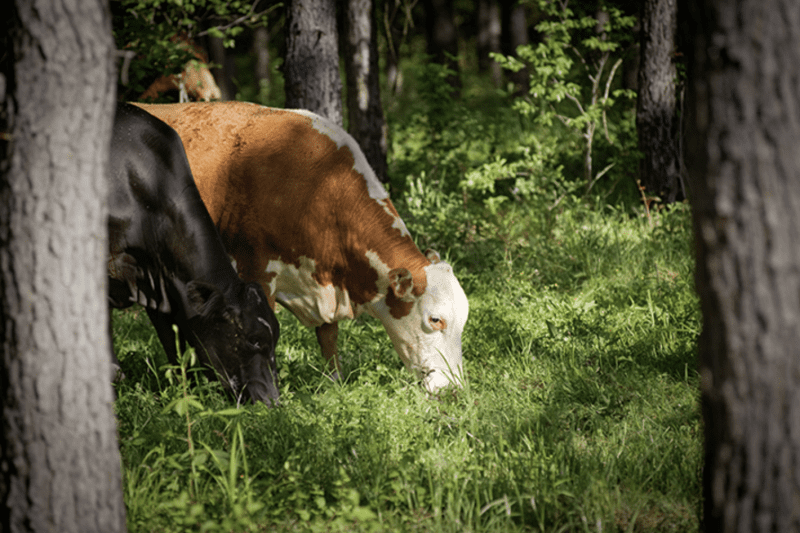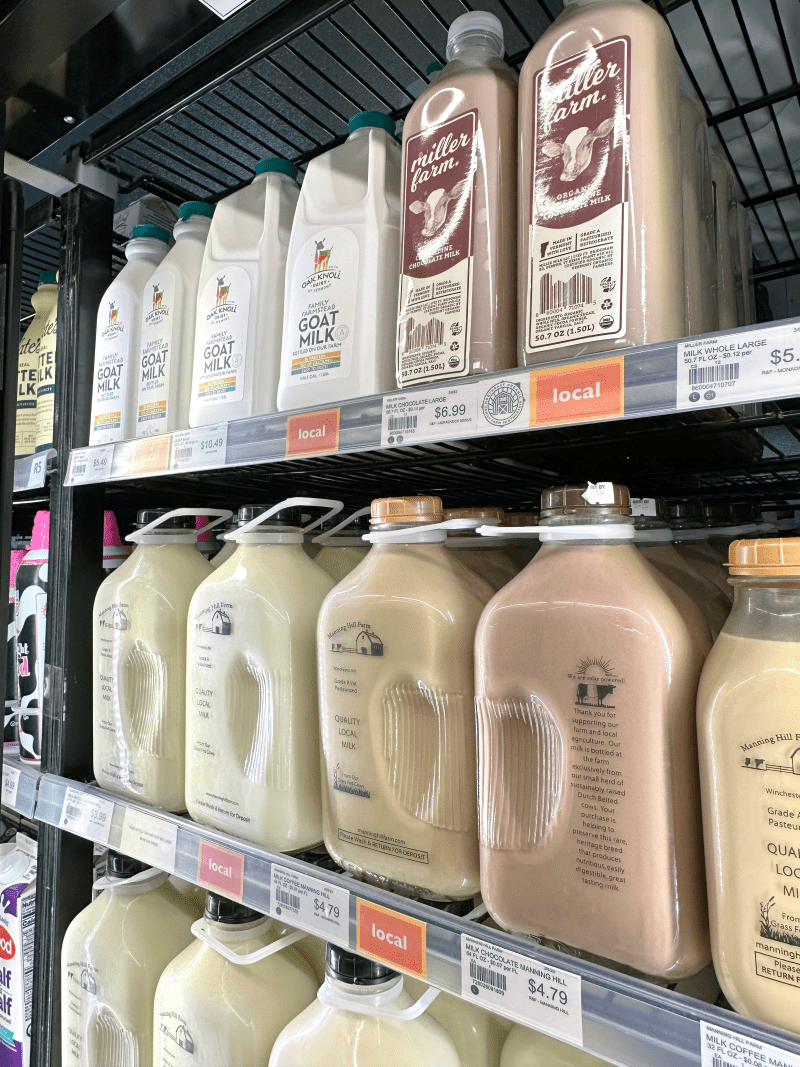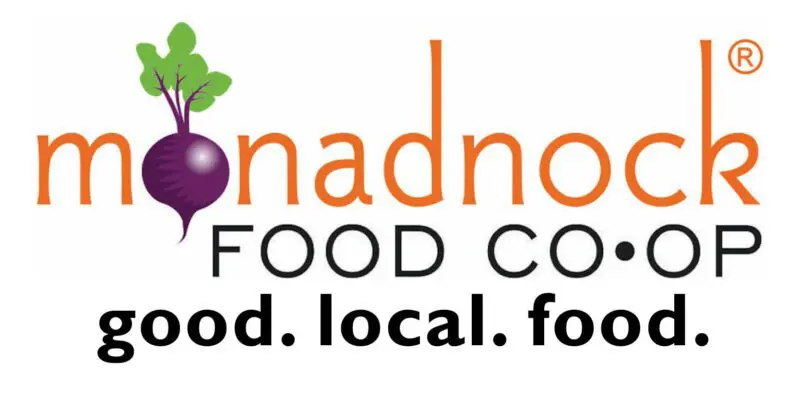Celebrating Local Dairy at The Monadnock Food Co-op
The Monadnock Co-op is proud to support over a dozen local dairy producers in our store, providing our community with multiple options and varieties of your favorite dairy products. From locally produced milk to locally made cheese and ice cream, the dairy industry in our community sustains our local economy and provides us with healthy, ethically sourced dairy options.
The national dairy industry supports more than 3 million jobs, which has a $794 billion economic impact. In New Hampshire, our dairy industry provides over 5,000 jobs and has a direct economic impact of over $769 million.
Why Support Family Farms?
By choosing locally produced dairy products, our money gets reinvested into our local community, supporting our local farms and their employees, and we reduce our carbon footprint in the process! In the northeast, farms tend to be smaller than in other parts of the country. It’s not just their job but often where they live and their families have lived for generations.
Why Organic Dairy?
Organic Family Farms are certified by special licensed and trained auditors to comply with USDA organic regulations. Organic farmers help to build and keep soil healthy, reduce harmful chemicals, and keep cows healthy! Organically-raised cows live twice as long as conventionally-raised ones. Visit Organic.org or USDA.gov to learn more about organic products and the standards set around them.
- Cows are red-green color blind.
- Cows don’t sweat!
- Cows can pick up a scent from up to 6 miles away.
- All 50 states have dairy farms, and 97% of those farms are family owned and operated!
- Until the early 1600s, there were no cows in North America!
- More than 1,000 new dairy products are introduced each year.
Some of our Local Dairy Producers at The Monadnock Food Co-op Include:
- Boggy Meadow Cheese
- Brown Cow
- Cabot Creamery
- Grafton Village Cheese
- Larson’s Farm & Creamery
- Manning Hill Farm
- McNamara Farm
- Miller Farm
- Oak Knoll
- Robie Farm
- Walpole Creamery
And many more for you to discover in our store! Look for the orange “Local” label next to your favorite dairy products!
Pasture Perfect: How Livestock Can Slow Climate Change
By Co+op
Adopting a plant-rich diet is one of the top things we can do as individuals to help slow climate change, but can some of the most popular foods fit into such a diet? Cheese, ice cream, bacon, and eggs—did we mention cheese?
 We’re happy to share that many climate scientists and agronomists agree that more sustainably produced dairy, meat, and animal products are possible; some even say that animals are an essential part of a thriving, regenerative farming system.
We’re happy to share that many climate scientists and agronomists agree that more sustainably produced dairy, meat, and animal products are possible; some even say that animals are an essential part of a thriving, regenerative farming system.
The potential lies in the pasture. Silvopasture, to be precise. “Silvo” comes from the Latin for “woodland” or “forest,” so silvopasture literally translates as “forest pasture,” and that’s pretty much the idea. Pastures that are at least 20-30% covered with trees sequester five to ten times as much carbon as treeless ones (which, by the way, are the current norm). For this reason, and more, Project Drawdown puts a transition to silvopasture at #9 on their top ten list of potential climate solutions.
The climate benefits of trees are well known. Trees take in carbon dioxide and release oxygen, storing carbon in their roots and trunks—but silvopasture is even more special because the natural behavior of grazing animals improves the soil’s ability to hold onto that carbon and absorb even more. As they graze, animals drop their manure and work it into the earth with their hooves, naturally fertilizing the pasture. This nourishes healthy perennial grasses that also sequester carbon. The animals chew those nutritious plants down to the ground, allowing fresh growth (and more sequestration). When fully implemented, silvopasture systems may be able to offset the methane and nitrous oxide produced by grazing animals, making these farms potentially carbon neutral. That is a HUGE accomplishment in livestock farming.
To read more, visit Grocery.coop!


